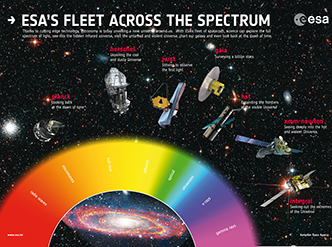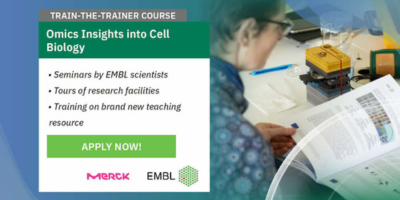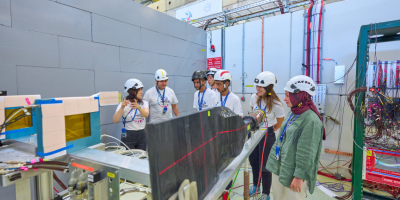
Understand
Explore cutting-edge science and real-world applications.

We cover a wide range of scientific topics and many articles are additionally available as translations in different European languages.

Explore cutting-edge science and real-world applications.

Discover projects, people, and resources.

Find ideas and teaching materials for classroom activities.
Articles from previous issues

Fordította Adorjánné Farkas Magdolna. Amikor valamilyen anyagot lehűtünk a fagyáspontjánál alacsonyabb hőmérsékletre, az megfagy –…

Fordította: Adorjánné Farkas Magdolnaés. Claudia Mignone és Rebecca Barnes végigvezet minket az elektromágneses spektrumon és bemutatja…

Fordította Adorjánné Farkas Magdolna. Ülünk rajtuk, magunkon viseljük, főzünk velük: mindenhol műanyagokkal találkozunk. Mivel sokféle…
Discover free events and activities offered by the EIROforum members and other non-profit groups.

EMBL's Science Education and Public Engagement team invites European STEM educators to attend a free course on ‘Omics Insights into Cell Biology’. Taking place in Heidelberg, Germany, on 18-20 March, the course offers seminars and hands-on training.

The pre-registration process for Beamline for Schools 2025 is now open! Pre-registered teams can join a series of preparatory online events.
Do you have an engaging classroom activity to share with other teachers? Is there an interesting scientific topic that you could explain to STEM teachers and their students? We welcome submissions from teachers and scientists.
Would you like to help ensure that our content is interesting, inspiring and useful to STEM teachers? Consider joining the Science in School teacher reviewer panel. There is no obligation; just send us an email to express your interest.
If you find an article interesting or useful, perhaps you'd consider translating it into your native language? This really helps to increase the reach of our content so that as many teachers as possible can benefit from it.